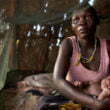The malaria rate among children has increased in Kalumbila District, according to results from a survey undertaken by Kalumbila Minerals Limited’s (KML) health and wellness department.
KML health and wellness promotions officer Marjorie Fwoloshi said the latest survey that was conducted across Kalumbila communities indicated an increase in positive malaria cases among children, a matter which had raised serious concerns.
KML, a First Quantum Minerals (FQM), subsidiary annually hosts health awareness promotional road shows in its 12 catchment community areas to spearhead the Seek and Treat malaria campaign, HIV screening and testing, syphilis test and treat, blood pressure checks and body mass/index examinations being conducted on-site.
“It is unfortunate that most children we have screened in schools have shown positive malaria results and not showing any symptoms of being ill. Such cases should be treated with the seriousness they deserve as high number of deaths are likely to be recorded if left unchecked,” Fwoloshi explained in an interview.
She, however, added that it was the duty of parents to ensure that all their children sleep under treated insecticide mosquito nets, and that all the tall grass and stagnant water around their premises were eradicated to curtail breeding ground for mosquitoes.
“The other concern noted among parents is the attitude of not completing the prescribed courses of drugs. Whenever they see that they feel better or a child seems to have recovered, they stop medication or share the dose with other members of the family, hence causing resistance to the drug given to treat the disease,” she observed.
And on the mining company’s health awareness campaign, Fwoloshi explained that this year’s second quarter health and wellness promotional road shows covered the 12 communities in Musele, Shineng’ene and Chovwe, among others.
“The health team on the ground recorded a total of 1,500 health screenings during road shows with a total of 1,891 during the Seek and Treat malaria campaign in schools within the 12 communities,” she explained.
She added that during the road shows, activities underway included edutainment, information on educational communication, and material distribution being chitenge materials and chlorine.
Community beneficiaries thanked KML for such initiatives, saying the health awareness shows were timely and helped people know their status for them to seek medical intervention.
Malaria remains a major cause of death in Zambia, particularly in endemic areas and among pregnant women and children under the age of five-years-old.
This is an issue that the Zambia National Malaria control programme says needs a focused, comprehensive and consistent approach in order to achieve the vision of a malaria-free Zambia by 2030.
– Courtesy of SUMA SYSTEMS.












